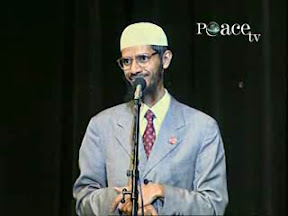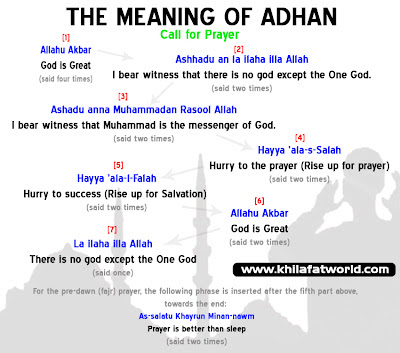Allah has decreed that, in this life, hardships and disasters strike both believers and non-believers. For a non-believer, they are inconveniences that hinder him from proceeding with his normal involvement in the worldly life. For a believer, on the other hand, they are instances of rest and remembrance, tests that promise great rewards, and indications of atonement and expiation of sins.
Regardless of how little is the harm that strikes a believer, it carries with it good news of forgiveness and elevated rank ( in Jannah ). The Righteous Predecessors used to be pleased when a hardship afflicted them, seeing it as a token of Allah's forgiveness and benevolence.
"Be sure we shall test you with something of fear and hunger, some loss in goods or lives or the fruits (of your toil), but give glad tidings to those who patiently persevere." [Quran 2:155]
Expiation of Sins
Abu Hurayrah (RA) reported that the Prophet said: " Hardships continue to befall a believing man and woman in their body, family, and property, until they meet Allah (S) burdened with no sins. " [Tirmithee]
Sign of Allahs Love
Abu Hurayrah (RA) reported that the Prophet (SAW) said: "Whenever Allah wills good for a person, He subjects him to adversity" [Bukharee and others]
Sign of Emaan (Faith)
Abu Hurayrah (RA) and Kab Bin Maalik (RA) reported that the Prophet (SAW) said: "The parable of a believer is that of a fresh and moist plant; the wind tilts it this way and that way; and so is the believer; he continues to be subject to affliction. And the parable of a hypocrite is that of a firm cedar tree; it does not shake - until it is uprooted all at once." [Bukhari and Muslim]
Sign of Righteousness
The prophets and righteous people are afflicted the most, and their rewards are the highest. Saad (RA) reported that the Prophet (SAW) said: "The most in their suffering among the people are the prophets, then the best, then the (next) best. One is afflicted in accordance with his deen (faith). If his deen is firm his affliction is hard, and if his deen is weak, his affliction is light. Indeed, one would be so much subjected to adversity until he walks among the people without any sins." [Ahmad, Tirmithee]
Early Punishment
Anas (RA) reported that the Prophet (SAW) said: "When Allah wills good for a servant of His, He expedites his punishment in this life; and when He wills retribution for a servant of His, He holds his sins for Him to judge him by them on the Day of Resurrection." [Tirmithee]
Multiplication of Rewards
Anas (RA) reported that the Prophet (SAW) said: "The amount of reward is in accordance with the amount of suffering. When Allah (SWT) loves some people, He tries them (with affliction). He who then is content (with Allahs decree) has achieved the acceptance (of Allah), and he who is dissatisfied (with Allahs decree) will attain the anger (of Allah)." [Tirmithee]
Rewards for Sickness
One should not look to sickness as a gloomy episode, but should remember the great good in it. It is one form of affliction with which Allah (SWT) tests His servants, giving them a chance to acquire rewards, as was explained above, as is further emphasized below.
Removal of Sins and Elevation in Ranks
Abu Hurayrah (RA) reported that the Prophet (SAW) said: "Whenever a Muslim is afflicted by harm from sickness or other matters, Allah will drop his sins because of that, like a tree drops its leaves." [Bukharee and Muslim]
Abu Saeed al-Khudree (RA) reported that the Prophet (SAW) said: "A Muslim is not afflicted by hardship, sickness, sadness, worry, harm, or depression - even if pricked by a thorn, but Allah expiates his sins because of that." [Bukhari and Muslim]
Aishah (RA) narrated that once some pain afflicted the Prophet (SAW) causing him to suffer and turn about in his bed. she said: "Had one of us done this, you would have blamed him." He (SAW) replied: " An ailment is intensified for the righteous. whenever a believer is afflicted by a hardship, whether it is a thorn or more, a sin is taken off from him because of it, and he is elevated by one rank (in Jannah). " [Ahmad]
Retaining Rewards for Deeds Before Sickness
Usually, when a believer falls sick, he would not be able to do the same amount of good (prayer, fasting, helping Muslims etc) that he used to do when he was well. But Allah out of His great mercy, continues to record for him the good deeds that he was forced to stop because of his sickness.
Abu Moosa Al-Asharee narrated that the Prophet (SAW) said: "For a traveling or sick person, his deeds will be recorded in accordance with what he used to do when he was resident or well." [Bukhari]
Abdullah Bin Amr reported that the Prophet (SAW) said: "No (believing) person gets sick, but (his deeds) will be recorded for him in accordance with what he used to do when he was well." [Bukhari]
Uqbah Bin Aamir reported that the Prophet (SAW) said: "Each days deeds are sealed with it. thus, when a believer gets sick, the angels say, " Our lord! Your servant such and such, You have restrained him (from doing good this day)." And the lord replies, " Seal his day in accordance with his (usual) deeds, until he is cured or dies". [Ahmad]
Reason for the Reward
Atta Bin Rabaah reported that Ibn Abbaas (RA) told him, "Do you want to see a woman from the people of Jannah (paradise)?" He said "Yes". He said: " It is this black woman. She came to the Prophet (SAW) saying, " I have (epileptic) seizures, and I get exposed, so supplicate to Allah for me." He (SAW) said: " If you wish, be patient and you will attain Jannah; or if you wish, I will ask Allah to cure you." She replied, " I will be patient ! But my body gets exposed (because of the fall), so supplicate to Allah for me that I do not become exposed." and he (SAW) did." [Bukhari and Muslim]
The scholars have differed in opinion as to whether a sick person will be rewarded for the sickness itself or for being patient during it. the correct opinion is that if he is patient and submits to Allah's will, as in the above hadeeth, he would be rewarded for both the submission and the sickness, otherwise, he would not be rewarded at all; because he resented Allah's decree. This is what should be understood from Ibn hajar al-Asqalaanees words: "The authentic hadeeths are clear in that the rewards are recorded once affliction strikes a Muslim. As for patience and acceptance, they are virtues for which a person may get additional rewards over those for the affliction." 'Abdullah Bin 'Amr reported that the Prophet (SAW) said: "If a Muslim is pricked by (as little as) a thorn in the worldly life, and he seeks its reward from Allah, some of his sins will be removed, because of it, on the Day of Judgement."[Bukhari]
"For, Believers are those who, when God is mentioned, feel a tremor in their hearts, and when they hear His signs rehearsed, find their faith strengthened, and put (all) their trust in their Lord;" [Quran8: 2]
































